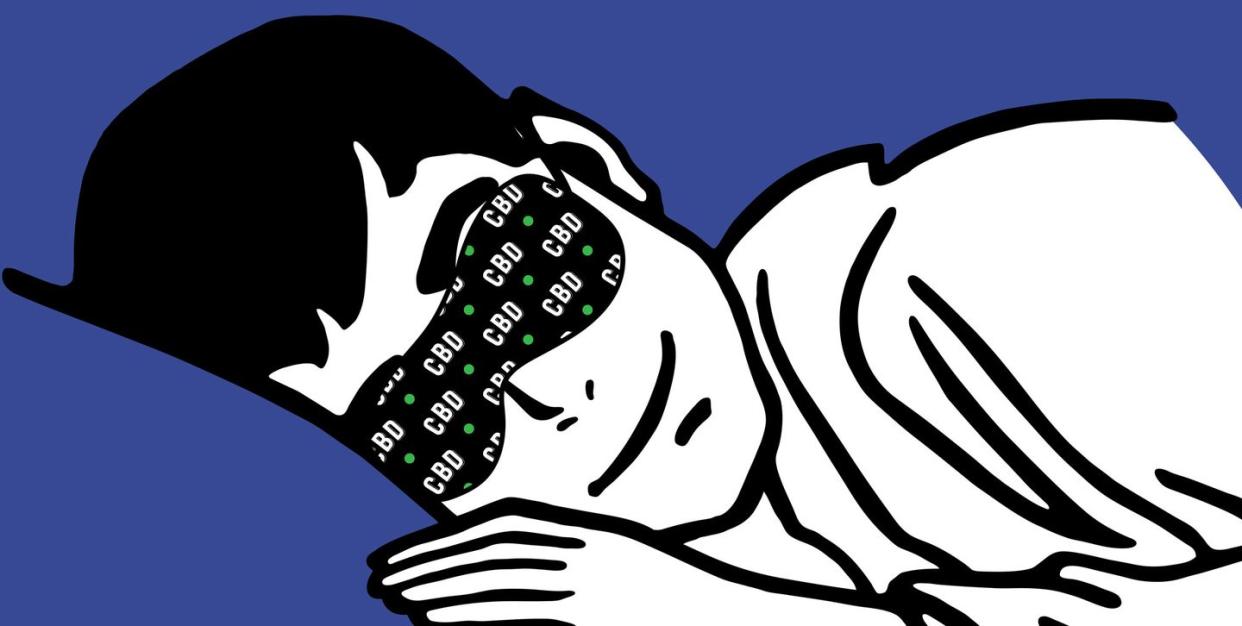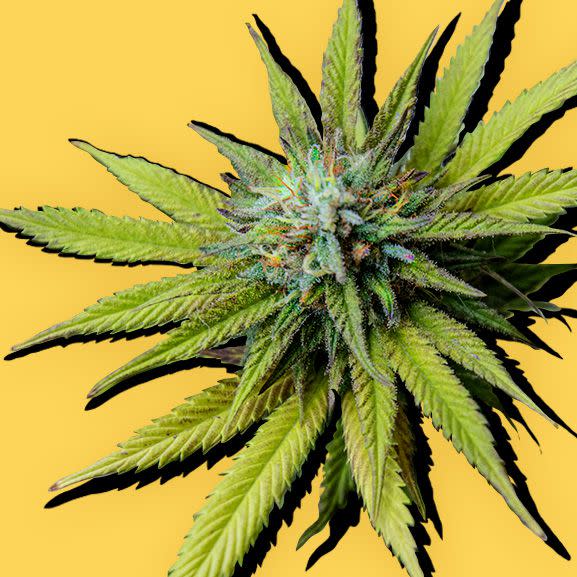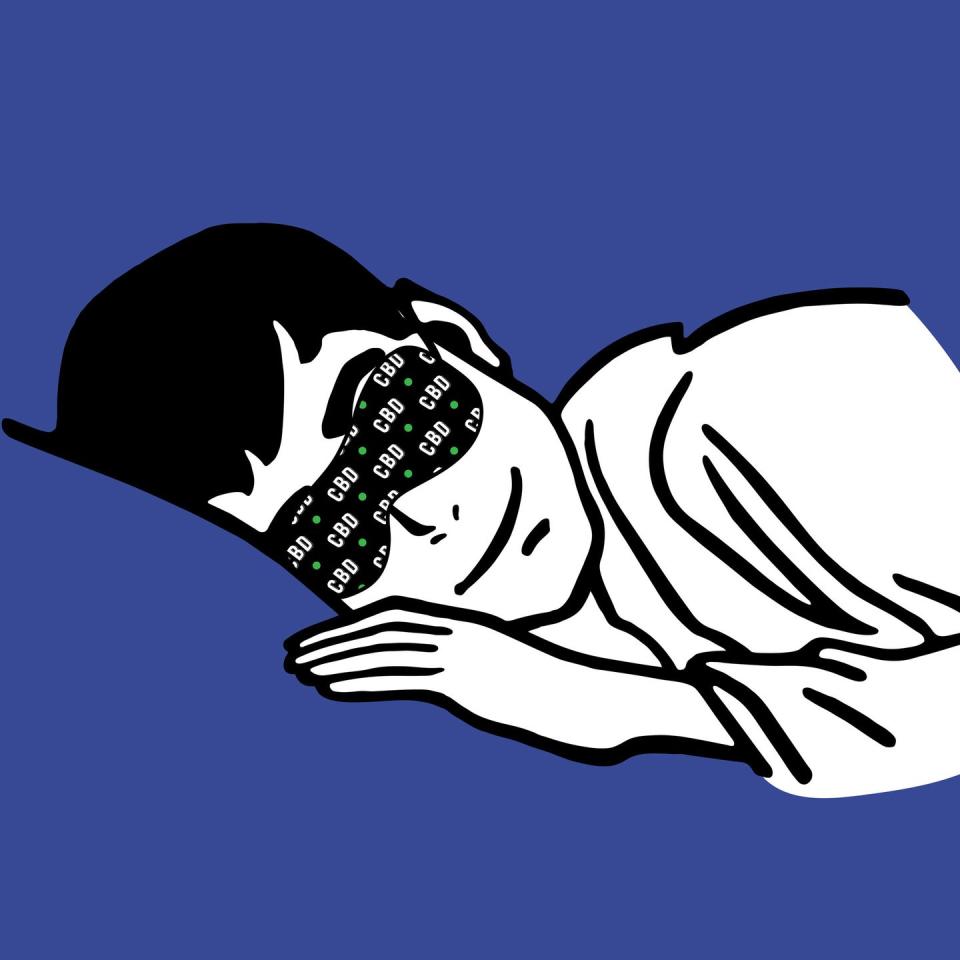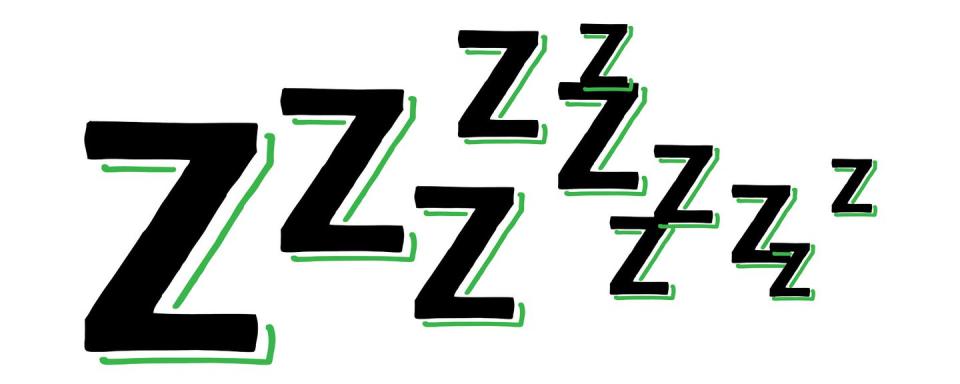Can CBD Actually Help You Sleep Better?

You’ve gotten serious about not using your phone in bed and sticking with a set bedtime routine. And yet night after night, you’re still laying in the dark, counting sheep. Maybe you start wondering: Could CBD possibly help?
Plenty of people insist that taking the stuff-in the form of an oil, edible, or drink-helps them snooze better. But the science on cannabidiol as a sleep supplement is mixed, and not all experts are convinced that it’s worth taking.
That’s not to say it’s something you shouldn't consider, though. Here’s what you need to know before giving it a try.
How does CBD work, anyway?

CBD, or cannabidiol, is a compound derived from the cannabis plant, which is the same plant that contains the psychoactive THC. Unlike THC, however, it won’t get you high no matter how much you take. However, it still affects the body’s endocannabinoid system, a network of neuromodulators and receptors involved in maintaining vital functions like mood, pain, appetite, and-yup-sleep.
When cannabinoids are consumed, their molecules bind to endocannabinoid receptors in the nervous system, which can trigger different neurological effects. CBD, for instance, seems to signal the release of feel-good chemicals like dopamine and serotonin, says medical marijuana expert Hervé Damas, MD.
And indeed, some studies suggest that CBD may help ease feelings of anxiety. It’s also been shown to have the potential to ease chronic pain and inflammation.
As for sleep? The endocannabinoid system plays a role in regulating the body’s circadian rhythm, Dr. Damas says. The thinking goes, then, that taking a cannabinoid such as CBD could potentially regulate the sleep/wake cycles of people with insomnia and help them sleep more soundly. (More on this soon!)
The research on CBD and sleep

Maybe your neighbor or coworker swears up and down that taking CBD helps her get a better night’s rest. There’s no shortage of anecdotal evidence hyping CBD’s effects on sleep-but what does the scientific evidence say?
The research at this point is pretty limited. One study from the 1980s found that people with insomnia who took 160 milligrams of CBD daily slept longer and woke less often. However, those researchers only looked at 15 people.
Bigger, newer studies are more mixed. A 2017 review concluded that CBD might have therapeutic potential for treating sleep problems, but only for people with REM sleep behavior disorder (a specific sleep disorder where people act out their dreams by moving, sleep talking, or sleepwalking). And it didn’t address how much CBD a person would need to take to reap the benefits.

Another study, published in 2018, found that consuming whole cannabis flowers (the flowering part of the cannabis plant as opposed to the leaves) was tied to a significant improvement in perceived insomnia symptoms.
The problem? The cannabis plant contains tons of different cannabinoids, so there’s no way of knowing whether the benefit came from CBD or something else. There was no control group, either. “Without a placebo arm, it’s impossible to tell whether cannabis or CBD is more effective or different than a placebo,” says cannabis therapeutics specialist Jordan M. Tischler, MD, who was not involved with the study.
Some research even suggests that CBD might make sleep more elusive. A 2014 review found that it seems to promote wakefulness, with the authors suggesting that CBD could have the potential to treat and manage sleepiness.
Can taking CBD help you sleep better?
The limited research seems to suggest that the answer is no. Experts like Dr. Tischler firmly believe that people who sleep better with the help of CBD are reaping the benefits of their own positive thinking. “They believe they’re getting treated. It makes a good placebo,” he says.
But others see more potential, especially for people whose sleeplessness stems from feeling anxious. “CBD has been shown to have anxiety-relieving effects, and anxiety disorders can be a cause of insomnia,” Dr. Damas says. If CBD can succeed in helping you feel calmer or less stressed, you just might have an easier time drifting off to dreamland.
If anxiety isn’t what’s at the root of your sleep struggles, it’s a bit harder to say if it will help. Research is mixed, and there’s still a lot we don’t know.
How to take CBD

If you want to try CBD to improve your sleep, it's important to get the green light from your doctor first. CBD can react with certain medications and isn’t suitable or safe for everyone.
You might also want to consider seeing a sleep specialist before trying CBD. Taking a supplement to help you snooze may ease your insomnia, but it won’t address the root cause. Your doctor can check for any medical problems that might be messing with your sleep and help you put together a plan to improve your sleep hygiene. “That might do wonders before we go recommending supplements,” Dr. Greenburg says.
There are also a few other things to keep in mind if you want to try CBD for better sleep. Here are three important ones:
1.) Do your homework.
When you find a product you’re interested in buying, research the manufacturer to make sure what you’re buying is safe. CBD products, like all OTC supplements, aren’t regulated, so they might contain more or less CBD than what’s listed on the label, and potentially even harbor contaminants like heavy metals, mold, or pesticides.
The ingredients, nutritional information, lot number, and expiration date should all be clearly listed, and the price should be consistent with other similar products. “Anything that’s super cheap is likely poor quality and may not even contain CBD,” Dr. Damas cautions.
Reputable manufacturers also lab-test their products to ensure that they’re free of contaminants. They should be willing to share a certificate of analysis (sometimes called a COA) if you request it, he adds.

2.) Start with a small dose and track your progress.
There are no dosing guidelines for CBD, and everyone responds to it differently. Dr. Damas has found that a low dose-around 25 milligrams daily-in a sublingual (Latin for “under the tongue”) liquid format like CBD oil is a good starting point, but you might not notice much of a difference after just one night. (Liquid forms of CBD tend to be absorbed faster than solid forms like tablets.)
“Because CBD works by increasing the circulating levels of your endogenous cannabinoids, supplementing for at least a week is recommended,” he explains. Still not feeling it? Try increasing the dose by 5 milligrams every few nights until you’re up to 40 milligrams. “In my experience, most people start feeling the sleep-inducing effects at that dose,” he says
3.) Have realistic expectations.
Know that CBD probably isn’t going to fix your insomnia forever. Even if a sleep supplement helps you snooze better at first, it can start to lose its potency after a while. “No matter what you’re taking, you’ll get used to it,” says sleep expert Jonathan Greenburg, DDS. “Over time, the efficacy will decrease, and the amount you’ll need to take for that same initial effect will increase.”
('You Might Also Like',)

